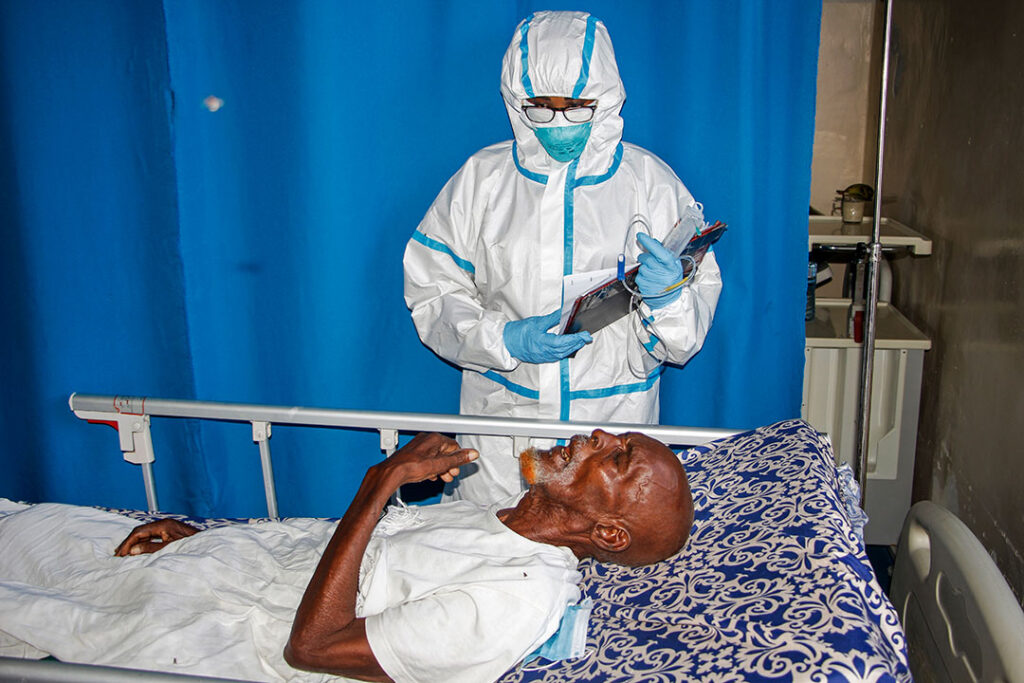ADF STAFF
As Somalia faces threats from multiple directions, the United States Agency for International Development (USAID) announced a $7 million donation. In addition to the COVID-19 outbreak, the country is battling huge locust swarms that threaten crops, livestock and the livelihoods of hundreds of thousands of people.
The money primarily will be used for “supplies to bolster water and sanitation activities,” Somalia’s USAID chapter said on Twitter.
Somalia has reported nearly 2,000 confirmed cases of COVID-19, the disease caused by a new coronavirus, and almost 80 deaths. Khalif Mumin Tohow, justice minister in the Hirshabelle State in south-central Somalia, was among the first Somalis to die from COVID-19.
The U.S. Embassy in Mogadishu, through USAID, also donated 350 hospital beds and 500 bedsheets to Somalia. The beds and accessories went to intensive care units at De Martino Hospital and isolation centers in Mogadishu and other regions.
“This generous investment makes it possible to save lives and better prepares us to control the infectious nature of COVID-19,” Minister of Health Fawziya Abikar Nur said. “To beat this outbreak, everyone needs to continue to peacefully follow health guidelines, observe social distancing and maintain good hygiene practices.”
The U.S. Embassy also has provided information technology equipment and furniture to COVID-19 testing laboratories and isolation centers in the Puntland cities of Garowe and Bosaso in northeast Somalia.
“The U.S. Mission in Somalia is doing a great job; this is the second COVID-19 support to Somalia. We appreciate the significant contributions from the mission,” Ahmednor Shukri wrote on the U.S. Embassy’s Facebook page. “Thank you for the generosity, efficiency & effectiveness.”
For many Somalis, the COVID-19 outbreak couldn’t have come at a worse time, as the country battles the largest locust swarms in decades.
In response to the locust outbreak in Somalia, Ethiopia and Kenya, USAID has offered $19 million to strengthen ground and aerial pest control, train pest control workers and buy protective equipment. Somalia, with an already-fragile food supply, was the first country in the region to declare a national emergency over the infestation.
Part of the USAID money is funding an operation that uses helicopters to spray the swarms with a bio-organic pesticide, Somali Minister of Agriculture Sa’id Hussein Iid told Voice of America.
“Before, we have been conducting hand-spraying and using machines mounted on vehicles, but we have realized that is not enough to fight with the pest and avoid devastation to our pasture and agricultural land,” Iid said.
Locusts began swarming into Somalia after heavy rains in late 2019 created favorable breeding conditions. A type of grasshopper, locusts travel up to 160 kilometers a day and eat all the vegetation they can. Locust swarms are an irregular — but potentially devastating — occurrence, and they can be large enough to force aircraft to divert.
“I have a lot of experience with locusts, but this is my first time to see such a size of a swarm,” Mehari Tesfayohannes, chief information and forecasting officer for the Desert Locust Control Organization for Eastern Africa, told Vox.

